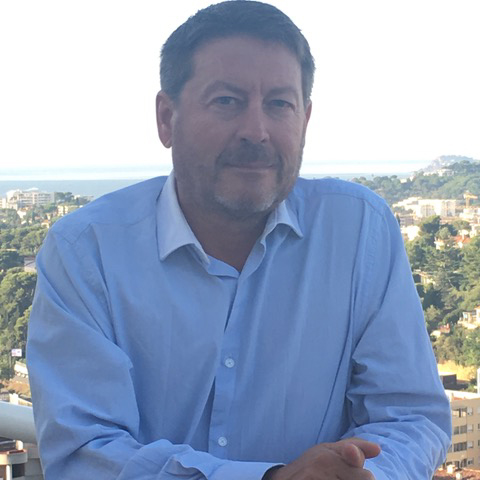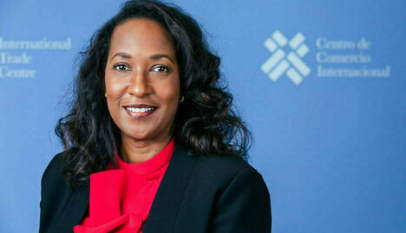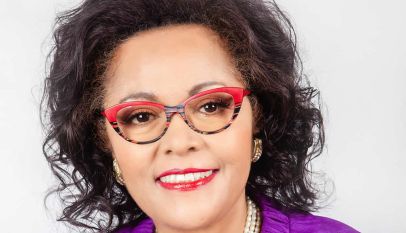INTERVIEW: “It’s time world science journalism conference come to Africa”
Christophe Bourillon, who was at the South Africa Science Forum 2018 in Pretoria, is the executive director of the World Federation of Science Journalists (WFSJ), focused on promoting science journalism; including the role of science journalists as key development players in civil society and democracy worldwide

AN: You have been the WFSJ`s executive director for some months now. How has the journey been so far?
It has been fantastic; there are lots of challenges, however. I like the science journalism community; it is diverse, and is full of very interesting individuals. Science journalists can tell great stories; they`re very good at reporting what other people do, but they are not good at telling the world about the importance of their job. So, this is the main job of the Federation: to raise the profile of science journalists across the world.
For instance, science journalists are doing a very important job in developing economies where policymakers need to make important choices; the choices they make now will have impact in the future. As a result, they need to make the best decisions; and a lot of the decisions are science-based. Therefore, science journalists play a very important role in providing credible information, and reporting the facts so that decision makers can make informed decisions.
As an international organization that was set up in 2002, the Federation is fairly new. Up until now, what we have been doing is mainly targeted at the science journalism community: organizing training workshops and producing toolkits to help science journalists grow and develop their skills. Now, we are going to do more outreach – engage with the public as well as policy makers – to inform them about the role of science journalists in the society. There are lots of science articles being written but less science journalists in the world. Our job, therefore, is to help create the enabling economic conditions for science journalists to flourish and develop, as well as get more job opportunities for them.
AN: Science journalism acts as the bridge between science and the public as well as between science and policymaking; how important is the role of science journalism in advancing Science, Technology, and Innovation (STI) in Africa?
Africa is very important for us. When I came into this position few months ago, the first thing I did was to speak to as many members of the Federation as possible around the world. I spoke to several member associations from Africa including Ghana, Egypt, and Kenya. I met many science journalists and I was amazed at how vibrant, enthusiastic, and dynamic the African science journalists’` community had been. In addition, I found that a lot of science journalists in Africa were working in fairly difficult conditions; however, they manage to produce high quality science stories. So, they`re doing a great job and since then I felt I needed to visit Africa as soon as possible to meet science journalists.
Every two years, we organize the World Conference of Science Journalists (WCSJ); this year it is going to be in Lausanne, Switzerland while last 2 years, it was in San Francisco, USA. I feel it is time for the conference to come to Africa. I don`t have a say, as to where the conference will hold next, but this is one of the things the Federation must do – ensure the conference come to Africa.
We are a Federation of 59 member associations and through the member associations, we`ve got about 10,000 science journalists worldwide. We will be looking at the membership model we have. I feel we should have a place for news media organizations, not as decision makers, they need to be part of the Federation because they`re important stakeholders – organizations for whom science journalists work. This help will help African science journalists by creating more job opportunities for them.
AN: What are your plans in terms of strengthening the capacity of African science journalists to do better?
At the moment, African science journalists are doing pretty well and my job is to provide them with the necessary tools they need to do more in their jobs. WFSJ is nothing without the 10,000-member journalists` community. I am not the Federation, so our only value is the community. And the current communication model we have is mainly between the headquarters and the members or vice-versa. So, one of the things we need to do to help science journalism in Africa is to develop a communication model between science journalists across borders.
This is because, for example, a science journalist in Argentina may be doing a story and wants to collaborate with a science journalist in Africa but he or she doesn’t know how to identify him or her. Therefore, we want to produce a world directory of science journalists worldwide, to help promote collaborations between members.
As a Federation, we would continue to organize workshops, and what I call dedicated press trips outside of the news circle. For instance, I would love to be able to get funding to take a group of journalists from Africa or elsewhere to the National Aeronautics and Space Administration (NASA), in the US; when NASA is not sending a rocket so that science journalists will have time to meet and talk with the scientists, and develop their knowledge of space.
Also, we need to help science journalists to cross borders. I see no reason why a science journalist from Africa should not be able to apply for an internship at the BBC, Washington Post or wherever they would want to go. Part of our job at the Federation is to help facilitate the movement of science journalists across borders. As a federation, we have one foot inside the community of science journalists, and also have another foot in the outside world. We are a channel, a bridge for science journalists everywhere and I am hopeful that we will be able to help science journalists from Africa.
Africa also needs ministries of information as the lighthouse for the importance of science communication and science journalism as well. It is also important for science journalists to make their voices heard. One of the things we must absolutely do at the Federation is helping create more member associations across African countries where there are no national science journalists associations.
AN: At the end of your tenure as WFSJ`s executive director, how do you want to be remembered?
I would like to be remembered as the person that helped make it happen; I may not make it happen but can enable it – the journalists will make it happen. I am only a transmitter, and it’s very important that you (science journalists) get your voices heard. My job is to be the loudspeaker transmitting your message. On this basis, I am in the process of writing the five year plan of the Federation. It’s not up to me to say what science journalists need, but I want to hear from you. I want you to tell me what you need to make your job better and easier as science journalists. I am not a science journalist myself, and I think it’s very good, just like you don`t need to be a pilot to run an airline, you also don`t need to be a science journalist to run WFSJ. But I want to make sure I listen to science journalists.
The 11th World Conference Science Journalists (WCSJ) is coming in July in Lausanne, Switzerland, what are you up to?
The WCSJ2019 in Lausanne is being organized jointly by the Swiss, French and the Italian Associations, respectively. From what I’m seeing they have done an extremely good job. Just the number of field trips; there are about 30 trips organized to laboratories, including other side events and a pre-conference workshop. So, the program is going to be very rich, and these are going to be extremely busy and successful five days. Altogether, this is the moment when the community gets together. The WCSJ is held every two years. However, I would like to organize regional conferences. Why? Because, being a science journalist in Africa is not the same as being a science journalist in the US.











